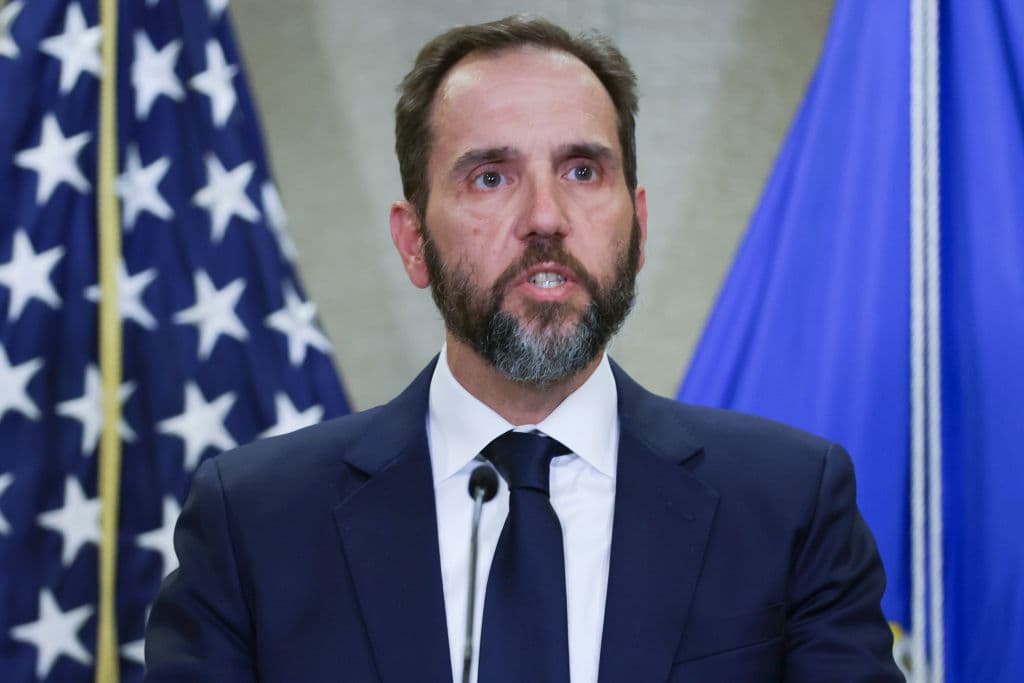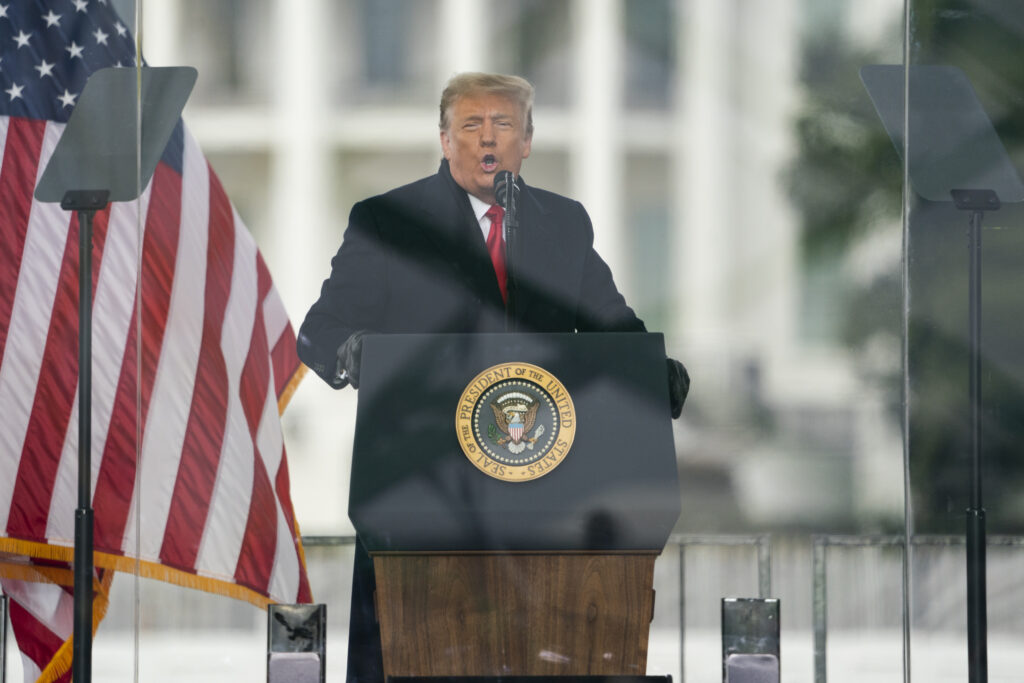Jack Smith, in Drive To Convict Trump for January 6, Unveils New Strategy — Drop the Details and Glide to Trial
The pivot marks a reversal for the special counsel, who’s swapped elaborate scheduling proposals for a laissez-faire approach to the calendar.

The joint status report submitted to Judge Tanya Chutkan by Special Counsel Jack Smith and President Trump discloses a stunning reversal of strategy. Now it is the 45th president eager to craft a detailed schedule of hearings, and the special counsel who is striking what appears to be a laissez-faire approach marked by a reluctant to offer specifics and deference to Judge Chutkan.
It is Mr. Smith, not the former president, who heretofore had been wont to fill in the calendar with deadlines. He offered an elaborate scheduling proposal to Judge Aileen Cannon in the Mar-a-Lago case, and it was Trump who sought an indefinite delay of the prosecution for stashing secret documents at the Palm Beach manse. That dispute, though, was mooted when Judge Cannon dismissed the charges.
In the January 6 case too Mr. Smith has found himself urging a punctilious and prompt approach to scheduling. He urged the United States District of Columbia Circuit to decide the immunity appeal on an expedited basis, which they granted. Even before the riders handed down a decision in Trump v. United States, Mr. Smith petitioned the Supreme Court for the “extraordinary” remedy of certiorari before judgment, a request that was denied.
The special counsel, though, appears to have pivoted. The first indication of this shift was his request that Judge Chutkan impose a three-week delay on briefing on how the Nine’s ruling in Trump v. United States that presidential official acts are presumptively immune ought to be applied to the prosecution of Trump. Now, the fresh approach has come into clearer focus.
Mr. Smith’s half of the status report proposes a “procedure by which the Court can schedule briefing and consider the parties’ positions on whether any categories of material … implicate immunity,” but does not mention a single date. The government only expresses a desire that any motions Judge Chutkan considers ought to “run parallel with the schedule for immunity briefing.” The special counsel insists only that the “Court’s decisions on how to manage its docket are firmly within its discretion.”

In lieu of a detailed program, Mr. Smith avers only that the “Government is prepared to file its opening immunity brief promptly at any time the Court deems appropriate,” a 180 degree pivot from his prior position that there was a “compelling” public interest in a trial in this case as soon as possible. Now, he seeks only “parallel opposition and reply deadlines” after his opening brief making the case that the actions in the new or superseding indictment are not entitled to immunity.
Trump’s half of the status report is, on the other hand, fulsome. A chart outlines a schedule that stretches to “Spring- Fall 2025” from September 30th. The former president’s lawyers assert that their schedule “moves the case forward expeditiously” and is faithful to the priority of “judicial economy” or efficiency. They do not deny, though, that “fully considering, researching, briefing, and resolving each of these potential motions will take considerable time and resources.”
Trump plans to move for Mr. Smith’s removal on the basis of the Appointments Clause of the Constitution, an argument that bore fruit in South Florida. Neither side, though, mentions the date that could prove decisive for the fate of the prosecution — November 5, when the presidential election will be held.
Mr. Smith has never explicitly cited that event, though his panoply of briefings urging haste appear to have been motivated by a desire to hold a trial before the election. His refiled indictment cleared by 10 days a Department of Justice rule that no new charges are to be filed against a candidate within 60 days before an election.
Trump has frequently invoked his role as the Republican nominee for president, and argued that Mr. Smith’s prosecutions are akin to political persecutions. Now, with no possibility of a trial before the election, the former president’s proposed schedule lists hearings for October 25 and November 8, but makes no mention of the election. The special counsel has decided against holding a mini trial for parsing immunity, another sign that his posture has shifted.
Mr. Smith’s deference to Judge Chutkan resembles nothing so much as District Attorney Alvin Bragg’s demurring from taking a position on Judge Juan Merchan’s decision on whether to delay a sentencing hearing for Trump, now scheduled for September 18.
The former president wants it pushed off in light of the Supreme Court’s immunity ruling. The Manhattan prosecutor wrote the judge that the People “defer to the Court on whether an adjournment is warranted to allow for orderly appellate litigation.” Both prosecutors could reckon that a victory by Vice President Harris would deliver them all the time they require.

